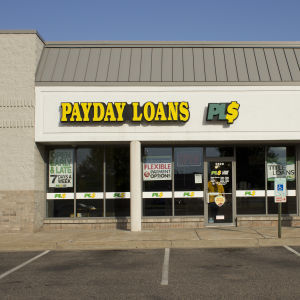Far too many Americans live paycheck to paycheck. For most the cause is just overspending and too little saving, but others struggle simply to earn enough to survive. Unfortunately, it is the latter that will be punished by proposed rules from the Consumer Financial Protection Bureau targeting small-dollar, or payday, lenders.
The Brookings Institution estimates that while one-third of U.S. households – 38 million people – live “hand-to-mouth,” two-thirds of those are not actually poor. Rather, they lack significant savings either because they overspend or because they prefer illiquid investments such as real estate or a retirement portfolio. That still leaves tens of millions with few assets and limited income that would be negatively affected by restricting access to small-dollar loans.
In March, the CFPB announced that it was “proposing rules that would end payday debt traps by requiring lenders to take steps to make sure consumers can repay their loans.” That explanation is generic enough to almost sound reasonable, but the details reveal that far from simply ending “payday debt traps,” what the rules under consideration actually would end is the availability of much needed credit for millions of Americans.
Borrowers who rely on payday loans to cover unexpected bills don’t generally have access to alternatives. Where others might cover an unexpected expense by using a credit card, for instance, they are forced to take out small, short loans to get them to their next paycheck. This is because they are deemed too risky for traditional banks due to their financial history or limited income.
The CFPB wants to protect such borrowers from digging themselves into an even deeper financial hole, but in so doing will further restrict credit to the very people who may need it most in order to pay bills, for a visit to the doctor, or to repair a car needed to get to work. Even their own analysis acknowledges that between 60 percent and 80 percent of the small-dollar loan market could be eliminated, which will force many to turn to even less desirable options on the black market.
Among the considered rules is an effective cap on interest rates that would be set well below current market levels for payday loans. Because small-dollar borrowers are high risk and frequently default, lenders must charge a much higher interest than traditional loans. And because the loan period is so short, the annual percentage rate can be orders of magnitude larger. Setting on arbitrary cap, however, would prevent the loans from being offered in the first place because lenders could no longer make enough to cover the risks and other costs.
It is likely for this reason that Dodd-Frank, which created the agency, specifically prohibits a usury cap, but the CFPB has unusual autonomy and little congressional oversight.
In addition to the unauthorized cap on interest rates, the proposed rules include onerous and unnecessary burdens that would further drive up the cost of servicing low-income Americans. They would limit the number of loans that could be accessed during a certain period of time, as well as require that lenders verify a borrower’s income, financial obligations and history before offering a loan.
A $100 loan should not require the same documentation as a home mortgage. The CFPB is infantilizing all borrowers because some are irresponsible and then unfairly putting the cost of enforcement on lenders. It won’t just be business that suffers, however, but those with nowhere else to turn for access to credit.
It’s not fun living paycheck to paycheck. Millions of Americans struggle with that reality every day. The last thing they need is a nanny government pretending that it is to their benefit to have their already limited options restricted even further.

